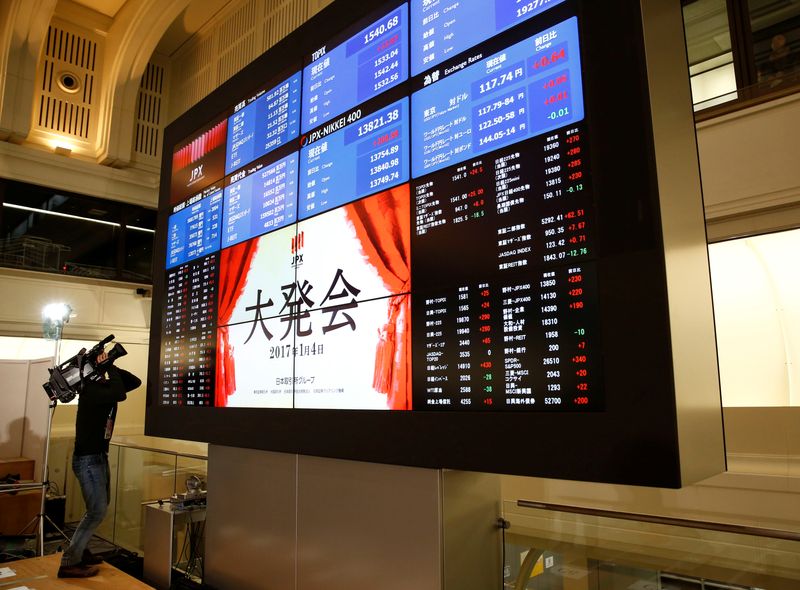(Reuters) - Japanese investors were net sellers of foreign bonds for the third consecutive month in May, as concerns over aggressive monetary tightening by major central banks shrank bond prices.
Japan's Ministry of Finance data showed domestic investors exited overseas bonds with a net 1.29 trillion Japanese yen ($9.66 billion), after sales of a net 2.19 billion yen in April.
(Graphic on, Japanese investments in overseas assets: https://fingfx.thomsonreuters.com/gfx/mkt/zdvxowznjpx/Japanese%20investments%20in%20overseas%20assets.jpg)
Meanwhile, data from Bank of Japan showed domestic investors sold 7.78 trillion yen worth of U.S. bonds and bought 1.4 trillion yen of European bonds in the first four months of the year.
(Graphic on, Japanese investments in US and European assets: https://fingfx.thomsonreuters.com/gfx/mkt/movanzgldpa/Japanese%20investments%20in%20US%20and%20European%20assets.jpg)
The Japanese yen hit a 20-year low against the dollar on Thursday, following a surge in U.S. yields and concerns over more rate hikes by the Federal Reserve.
The Japanese currency has been weighed down by a widening policy divergence, with the Bank of Japan one of the few global central banks to maintain a dovish stance. [FRX/]
"There appears to have been very little Japanese participation in the USD/JPY rally so far," Adam Cole, chief currency strategist at RBC Capital Markets, wrote in a note.
"Local investors have been selling foreign bonds (and buying JPY) all the way through the move and hedge ratios have probably only just started to fall, reflecting the rise in the cost of hedging, which is itself at an early stage."

Meanwhile, Japanese investors were net buyers in overseas stocks in May after trimming their holdings in the previous two months, the data showed.
($1 = 133.5200 yen)